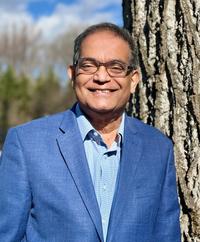Delving into 5000 years of history, Amitav Acharya argues that building world order is not the monopoly of any civilization, region or nation. Some of the foundational principles and institutions of world order that we have today were developed – both independently and through mutual contact – by multiple societies, in similar if not same forms at different stages of history. These include anarchic and hierarchic inter-state systems, republicanism, freedom of seas, open trade, human rights, nationalism, humanitarian law, Great Power cooperation, and realpolitik and moral statecraft. These and others can be traced to non-Western civilizations: Islam, Africa, pre Columbian Americas, Mongols, India and China, among others. The modern West is also a contributor, but often a late one, influenced by others. Although history does not repeat itself or is not cyclical, a five millennia look back does suggest possibilities and pathways for a pluralistic world order.
This is a joint event organised by the Oxford Martin Programme on Changing Global Orders with the Oxford Martin School.

Amitav Acharya is the UNESCO Chair in Transnational Challenges and Governance and Distinguished Professor at the School of International Service, American University, Washington, DC. His recent books include Constructing Global Order (Cambridge 2018); The End of American World Order (Polity 2014, 2018) and The Making of Global International Relations (Cambridge 2019: with Barry Buzan); His articles have appeared in International Organization, International Security, International Studies Quarterly, Foreign Affairs, Journal of Peace Research, International Affairs, Perspectives on Politics, and World Politics. A Past President of the International Studies Association (ISA), he is the winner of three ISA Distinguished Scholar Awards, that respectively cite his "contribution to non-Western IR theory and inclusion;” “influence, intellectual works and mentorship” in the field of international organization; and “extraordinary impact” in globalizing the study of International Relations.
More information and registration at: 'Navigating world orders over five millennia:… | Oxford Martin School